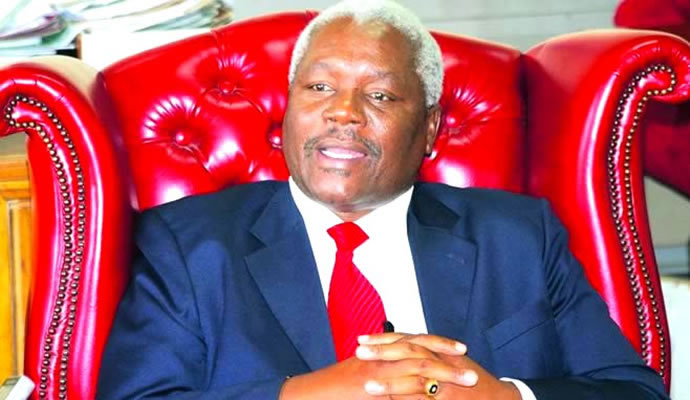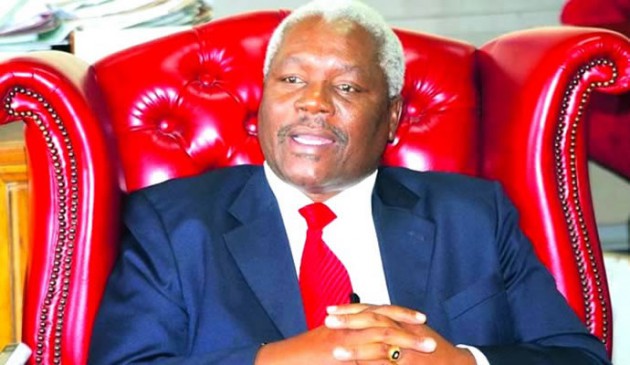Innocent bystanders or dwarfs in oversize intellectual robes?

Lloyd Gumbo Mr Speaker, Sir
OUR parliamentarians will find it difficult to earn public trust as long as they continue with their vacuous deliberations in that august House.
Hecklings, acrimonious exchanges between legislators from Zanu-PF and MDC-T, polarisation and archaic political party rules have all corroded the public’s faith in this third pillar of the State.
Parliament sometimes resembles a vegetable market because of the dishonorable way some legislators conduct their business.
Will we ever live to see our representatives focus on serious business that will at the end of the day improve our livelihoods regardless of which party one belongs to and sympathises with?
The general feeling among Zimbabweans is that taxpayers’ money is going down the drain because our legislators are not fulfilling the mandate that we gave them when we elected them.
Parliament, by virtue of being one of the three arms of the State, has the key mandate of playing an oversight function on the executive that scholars believe has a tendency to abuse or misappropriate public funds and monopolise State organs.
In exercising this role, legislators are constitutionally mandated to also play an oversight role on all State organs including parastatals and enterprises where Government has an interest.
Portfolio committees were created to lessen the burden on the House by investigating and receiving oral evidence from all institutions before reporting their findings to the whole House.
For it to have teeth, Parliament was given powers to send people who defy its instructions to jail.
To fully play the oversight role, parliamentarians must investigate these institutions to determine if what they say in the public domain about their financial management is factual or mythical.
They should not take everything they are told by these officials as gospel truth without conducting their own investigations.
The serial revelations of how some officials in public institutions are fleecing taxpayers’ funds for selfish gain raises a lot of questions about the role of Parliament considering that this has been going on for so long.
The media have been at the forefront of unearthing these scandals while ministries and portfolio committees that superintend over these parastatals, bar the Ministry of Information, Media and Broadcasting Services, have been as quiet as church mice.
The Ministry of Information, Media and Broadcasting Services took the initiative to expose poor corporate governance and misappropriation of funds at ZBC while other ministries appear “shocked” at the levels of corruption and poor corporate governance at their parastatals.
Kudos also go to the Ministry of Mines and Mining Development for setting the ball rolling in bringing sanity to the diamond sector starting with Marange Resources.
While these ministries are making frantic efforts to correct wrong things, it boggles the mind to find Local Government, Public Works and National Housing Minister Ignatius Chombo arrogantly attempting to baptise the rot at Harare City Council.
All State entities fall under a specific parliamentary portfolio or thematic committee that has the obligation to exercise oversight over them.
If anything, parliamentary committees should have been the first ones to expose these shenanigans.
But alas, they are content receiving evidence from parastatal officials without conducting their own investigations.
The previous committee on Mines and Energy from the Seventh Parliament that was chaired by the late Zanu-PF legislator for Guruve South, Cde Edward Chindori-Chininga, is the only one that has so far proved it was worth its salt.
The committee made its name because it had a strong chairperson who did not allow partisan politics and assumed party interests to shroud the direction they took.
That committee was also not content with “official” evidence from people who appeared before it.
They went further to dig up more information, which made the committee the most feared by anyone who appeared before them including ministers who trembled at the sight of an invite to appear before them.
This is a committee that knew what their mandate was and as a result whistle-blowers were comfortable volunteering information because they knew there would be action.
Now there is the usual mantra by legislators that they do not have enough space to play an oversight role.
What they forget is that they have been inviting representatives of boards to meetings and asking about viability issues only.
The song that has been repeated like a broken record has been “At such and such an organization, for instance Air Zimbabwe, they were failing to break even because Government has not been giving them enough money etc.”
The question is, what made our MPs fail to just enquire, without asking who is earning what, the level of salaries in these sectors?
Just percentages of running costs, wage bills, overheads and other related information?
My question remains, if our Members of Parliament invite representatives of tertiary institutions, do they just ask if University A, B, C or D is doing well because it has 20 000 on its enrolment register and is not receiving enough Government support?
Or they should dig deeper and ask what the universities are doing to ensure that their graduates are employable?
Because of the enrolment, some universities are earning over US$12 million per semester and the question should be where is all that money going considering that almost all universities have accommodation crisis?
Are numbers in their own right not a money making scheme? How much is earned in these colleges by the vice-chancellors and senior management?
What is the rationale behind these universities buying properties, engaging in brick moulding at the detriment of their co-business – teaching and learning?
These are questions and issues that should preoccupy our legislators. There should be a lot of soul-searching in the House about the erosion of their own integrity since they decided to look the other way while Zimbabwe was burning as it were.
Some legislators argue that political party stranglehold on what they must say in committees and the House has limited them from fully exercising their mandate.
The irony is that parties may recall legislators they feel no longer represent their interests but at the same time the legislature is said to be independent.
It is also a fact that legislators suffer from fear of the unknown syndrome where they think they may be reprimanded for touching on sensitive institutions and individuals.
It’s disheartening to see legislators frustrate proceedings in the House or during committees by raising points of order that are not necessary.
It is high time legislators spell out their interests in particular cases than flagging party interests when in actually fact their political parties as institutions have nothing to do with the particular cases.
The question then is, are our legislators intellectual dwarfs in oversize political robes or just innocent bystanders?









Comments